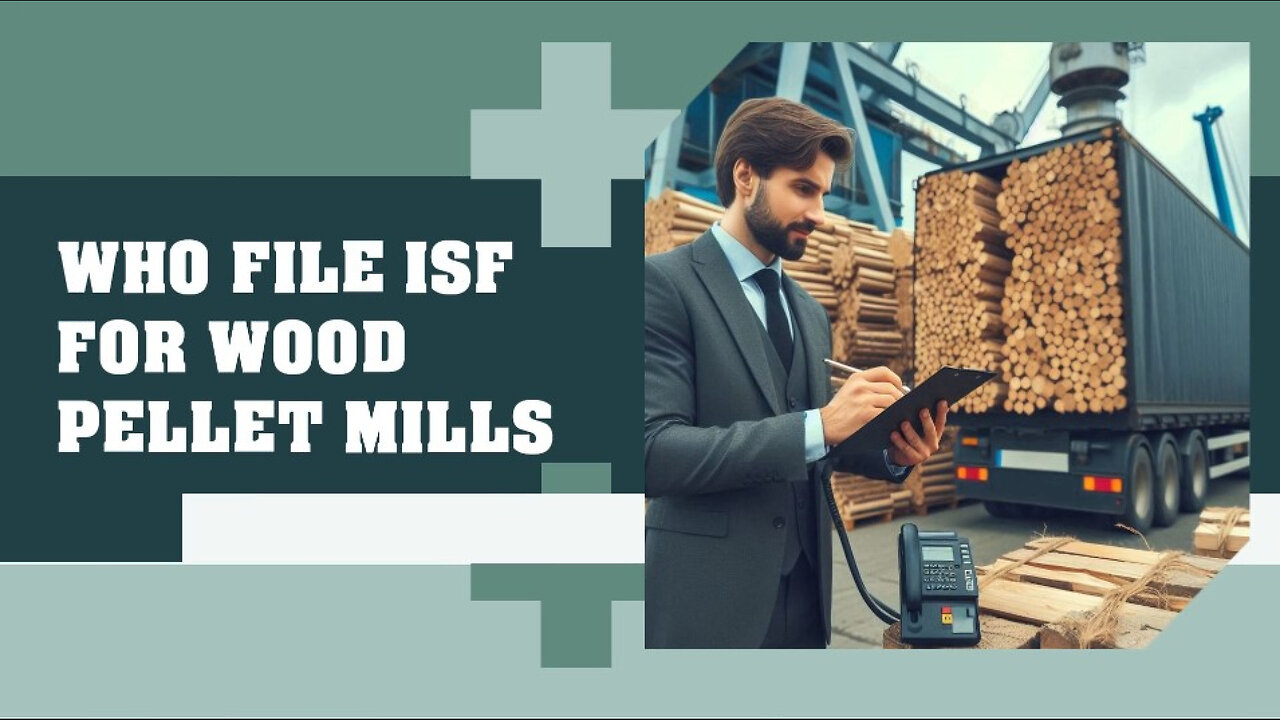Premium Only Content

Mastering ISF Filing: A Guide for Wood Pellet Mills in Global Trade
US Customs Clearing | 213-270-1930 | info@uscustomsclearing.com | https://uscustomsclearing.com/
In the context of customs brokerage, understanding the Importer Security Filing (ISF) requirements for wood pellet mills is fundamental for compliant import processes. The ISF, known as the '10+2' rule, mandates detailed information submission to Customs and Border Protection (CBP) before goods arrive in the United States to ensure regulatory adherence and risk mitigation in global trade. Responsibilities for ISF filing typically fall on the importer of record, whether domestic mills exporting wood pellets internationally or foreign producers shipping to the US market. Accurate ISF filings, encompassing essential details like importer information, supplier details, and cargo specifics, are crucial for seamless customs processing and to avoid potential penalties for wood pellet mills.
Furthermore, utilizing customs bonds can be a key component for wood pellet mills to facilitate import processes and uphold compliance standards. Educational initiatives within wood pellet mills to inform stakeholders about ISF requirements are critical to ensuring proficient import documentation practices and maintaining regulatory compliance. Automation tools and customs brokerage services play a significant role in enhancing the ISF filing process for wood pellet mills, reducing errors, streamlining submissions, and ultimately improving operational efficiency. Staying abreast of regulatory changes and engaging with experienced customs brokers offer wood pellet mills valuable insights to navigate evolving international trade landscapes effectively.
The consequences of inadequate ISF filing, such as delays, inspections, and fines, underscore the significance of timely and accurate submissions for wood pellet mills. By fostering a comprehensive understanding of ISF requirements, wood pellet mills can optimize their customs processes, mitigate risks, and support efficient international trade operations.
#usimportbond #isfcustomsbroker #uscustomsclearing #isfentry
Video Disclaimer Here: For learning purposes only, We claim no affiliation with any US government agency.
00:33 - Importers of wood pellets must comply with Importer Security Filing (ISF) regulations, also known as the 10+2 rule, which requires specific details to be submitted to Customs and Border Protection (CBP) before goods arrive in the U.S.
1:05 - The importer of record, whether a domestic mill or a foreign producer, is responsible for filing the ISF, ensuring that all necessary information about the shipment, including the bill of lading number and cargo description, is accurately provided.
1:58 - Failing to file an ISF or inaccuracies in the filing can lead to significant delays, customs inspections, and fines, impacting the operational efficiency and financial performance of wood pellet mills.
2:23 - Utilizing customs bonds, engaging with experienced customs brokers, and employing automation tools can streamline the ISF filing process, while ongoing education and staying informed about regulatory changes are vital for compliance in the evolving landscape of international trade.
-
 2:38:54
2:38:54
TimcastIRL
9 hours agoElon Secret Child Scandal ERUPTS, Ashley St. Clair Story Goes Viral w/Bethany Mandel | Timcast IRL
157K100 -
 2:04:52
2:04:52
Kim Iversen
12 hours agoElon's Pumping Out Babies Like They're Tesla Model 3's | EU Panics Over Peace Talks, Wants More War
151K133 -
 1:05:35
1:05:35
Man in America
14 hours agoFort Knox & Trump’s Secret Gold Move—The Financial Reset NO ONE Is Ready For?
96.2K116 -
 2:21:20
2:21:20
Robert Gouveia
11 hours agoTrump Goes to SCOTUS! Judge CAVES on DOGE? Fani Willis Not Happy!
114K31 -
 20:41
20:41
Stephen Gardner
11 hours ago🔥You Won't BELIEVE What JUST Happened To Don Trump Jr.!!
119K199 -
 58:00
58:00
The StoneZONE with Roger Stone
9 hours agoEuropean Leaders Resist Trump Peace Overtures To Their Own Demise | The StoneZONE w/ Roger Stone
81.7K12 -
 9:29
9:29
AlaskanBallistics
11 hours ago $8.88 earnedWyoming Suppressors and Rifles at Shot Show 2025
99.2K4 -
 1:06:40
1:06:40
Donald Trump Jr.
15 hours agoThe Left is Taking one L After Another, Live with Michael Knowles | Triggered Ep. 217
188K120 -
 47:17
47:17
Kimberly Guilfoyle
15 hours agoWoke Gets DOGE’d, Live with AJ Rice & Jarrett Stepman | Ep. 197
137K44 -
 20:11
20:11
Candace Show Podcast
13 hours agoBecoming Brigitte: Candace Owens x Xavier Poussard | Ep 6
206K335